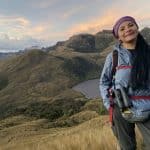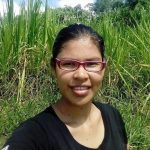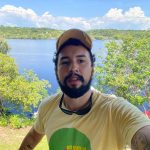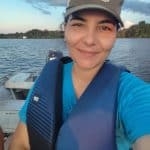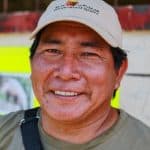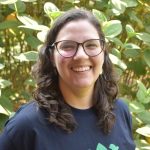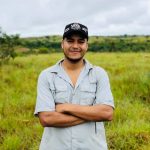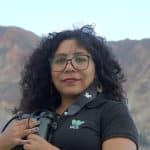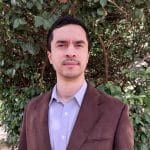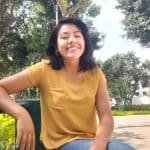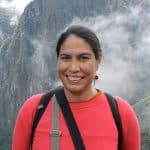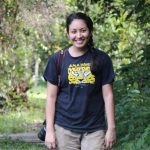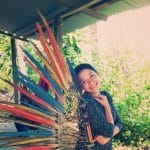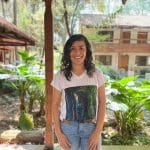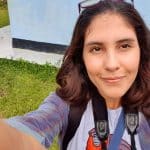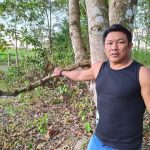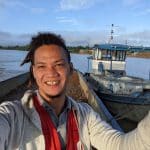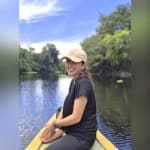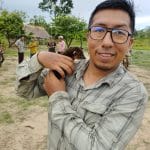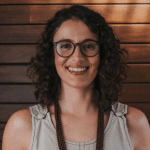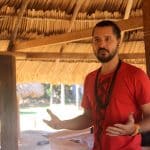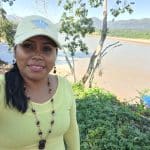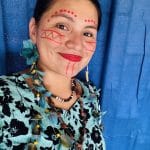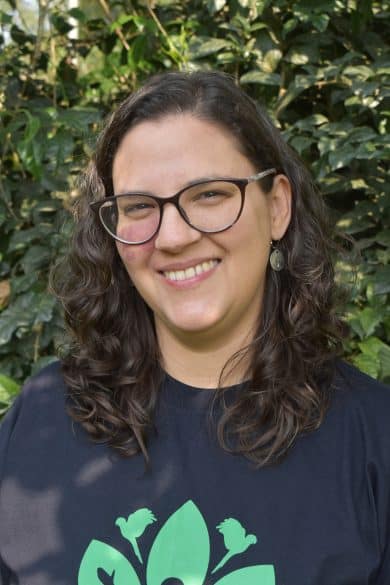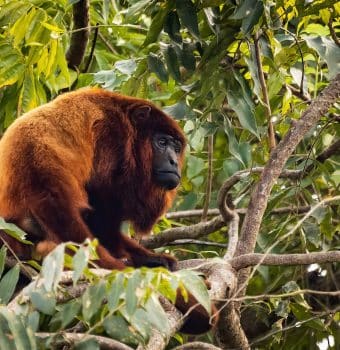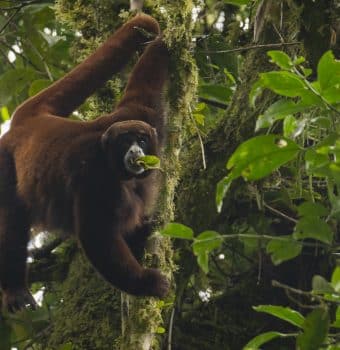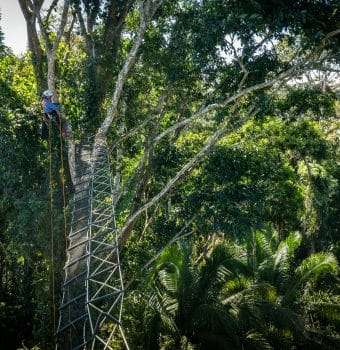The Amazon basin is a key conservation landscape critical to the overall health of the planet with unique biodiversity found nowhere else on earth. The Rising Wildlife Leaders – Amazonia Program is a joint initiative of the Wildlife Conservation Network (WCN), Gordon and Betty Moore Foundation, and the Global Environment Facility’s Fonseca Leadership Program that helps build local conservationists’ leadership capacity and a collaborative conservation ethos in the region by providing emerging leaders working in Amazonia the skills, network, and confidence for effective long-term conservation careers, resulting in a robust new generation of highly skilled and collaborative leaders working together to protect the Amazon and its incredible wildlife.
To support conservationists’ growth journey, WCN provides participants with a two-year training program tailored to their individual needs and goals. The program includes three in-person workshops, individualized capacity-building opportunities, professional mentoring, and facilitated peer learning.
If you also believe local conservationists need support to thrive in their careers, please consider supporting WCN’s Rising Wildlife Leaders – Amazonia Program.
Meet the Inaugural Cohort of the Amazonia Program
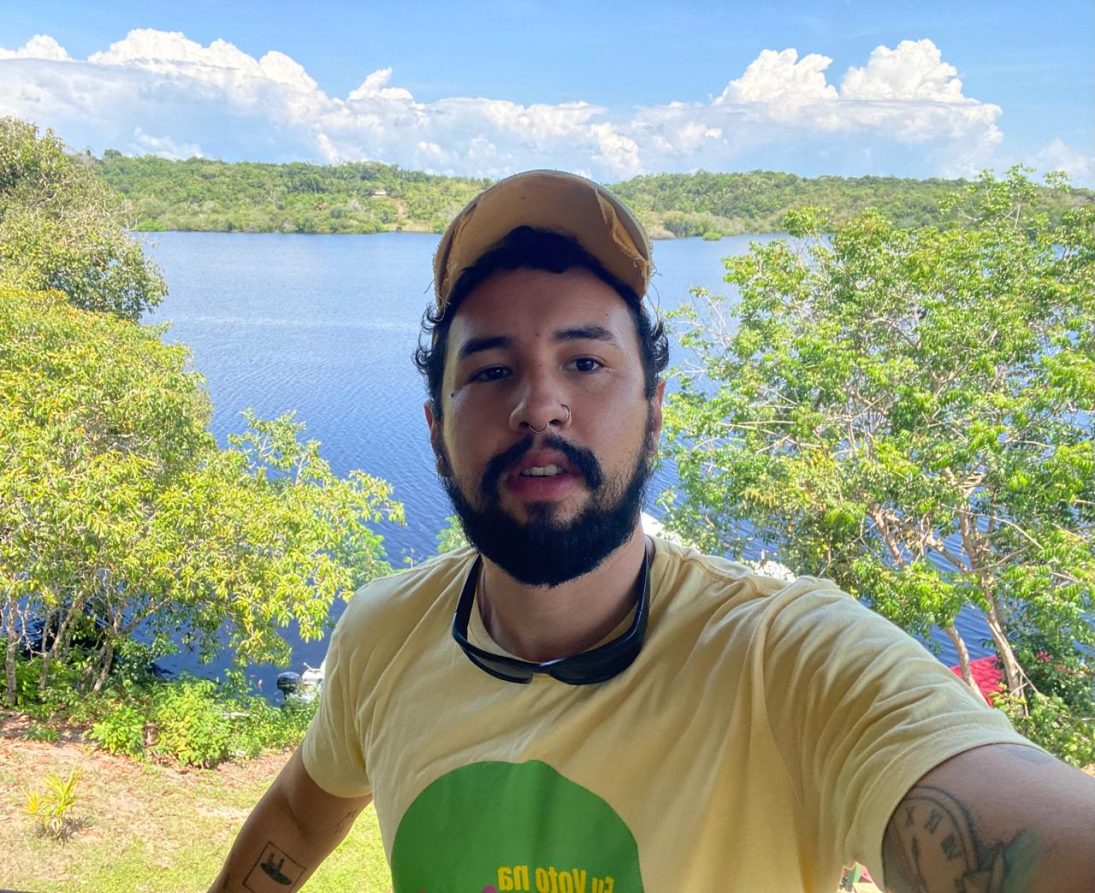
Allex Mendonça
BrazilAllex Mendonça
Country: Brazil
Allex Mendonça is an attorney, graduated in Law with a Master’s degree in Environmental Law from the University of the State of Amazonas, with specialization in Public Law. With solid experience in the third sector, his focus is on scientific research and public policy projects aimed at the environmental area. He has expertise in topics related to conservation and territorial governance, endorsement and implementation of environmental and climate public policies in the Amazon, in addition to supporting financing initiatives for socio-environmental projects in the Amazon.

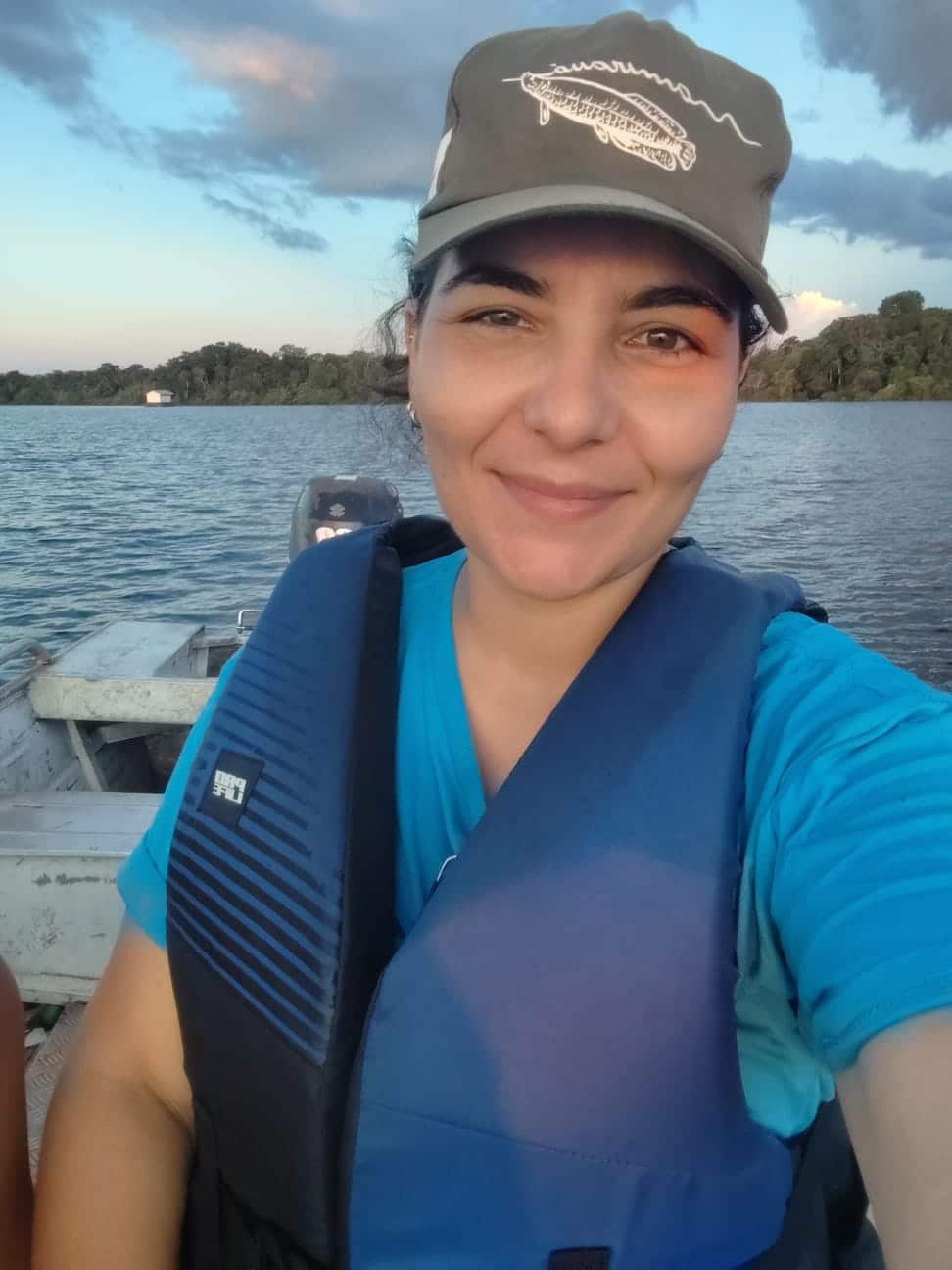
Anamélia de Souza Jesus
BrazilAnamélia de Souza Jesus
Country: Brazil
Anamélia is a researcher dedicated to the study and conservation of Amazonian primates. Since 2016, they have been working on projects that involve local communities in participatory data collection on biodiversity. Currently, their work focuses on monitoring medium-sized and large-sized primates and mammals along an environmental gradient in the Middle Solimões, using trap cameras and LiDAR in combination with linear transects. She investigates the interactions between environmental variables, human pressures and the community of primates and game mammals, with the objective of developing sustainable conservation strategies for hunted species. Anamélia is also an active advocate for the training of local scientists and the creation of spaces for dialogue on subsistence hunting as an ally of conservation in the Amazon. Biologist, master in Zoology and teacher in Health and Environment in the Amazon, she is committed to innovation in the conservation of Amazonian biodiversity.

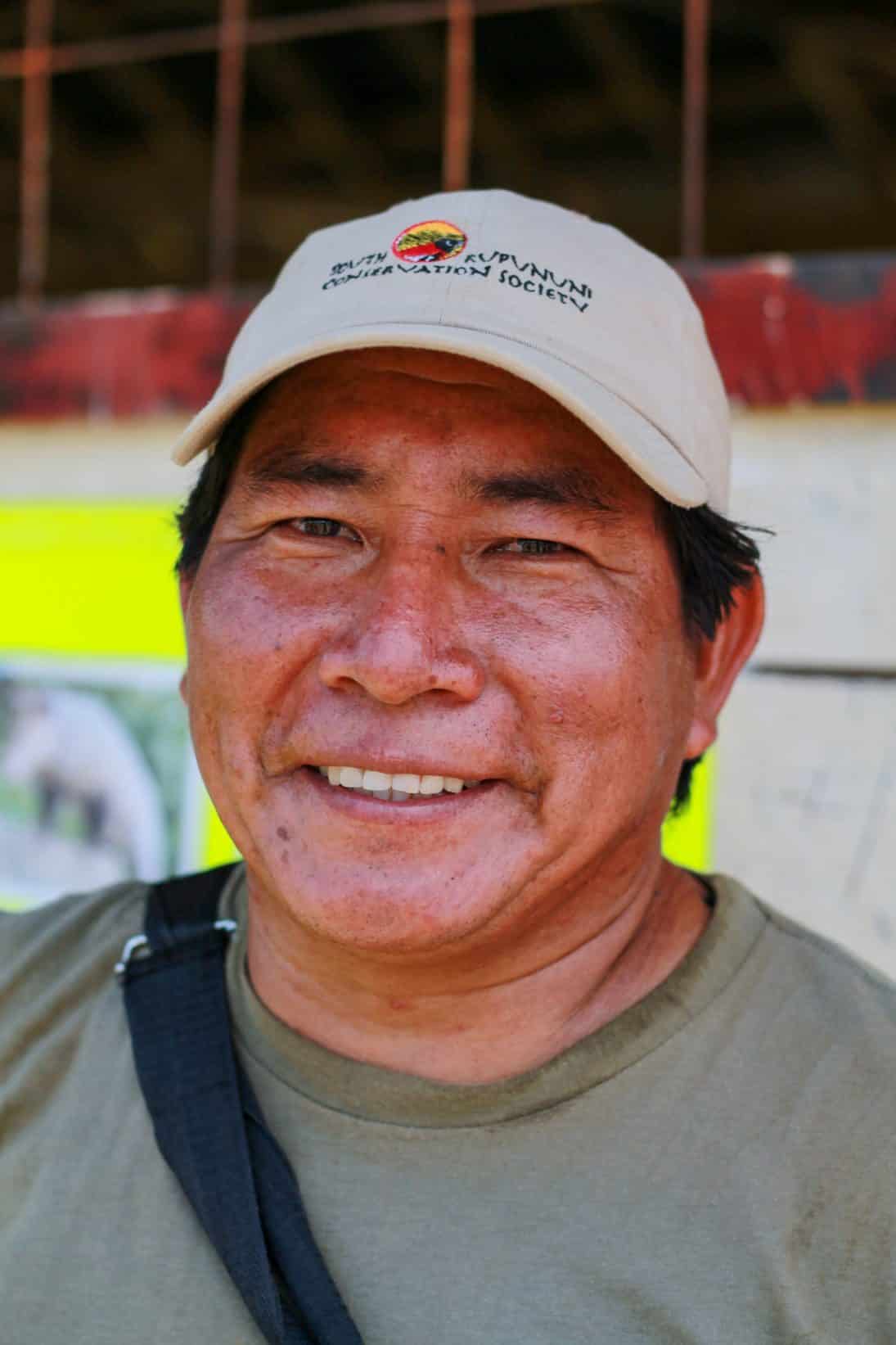
Angelbert Johnny
GuyanaAngelbert Johnny
Country: Guyana
Angelbert Johnny has been working with the small grassroots organization, the South Rupununi Conservation Society (SRCS), since it was formed 22 years ago. The society started when friends and colleagues saw the depletion of wildlife in their territory. Angelbert’s earliest conservation-related work was to monitor and protect the critically endangered Red Siskin, and today he is the Project Manager for the SRCS Giant Anteater and Giant Armadillo Community Research and Conservation Programme. In the interim, he has gained deeper skills and knowledge when conducting field mapping, cultural research and monitoring of the Indigenous territories of the South Rupununi with the South Rupununi District Council. This led to work defending the rights of his people to their ancestral lands, and leading the struggle for land recognition. Today, Angelbert acts as an advisor to local village councils on land issues. He also works with villages to advocate for community conserved areas to protect vulnerable habitats and species.

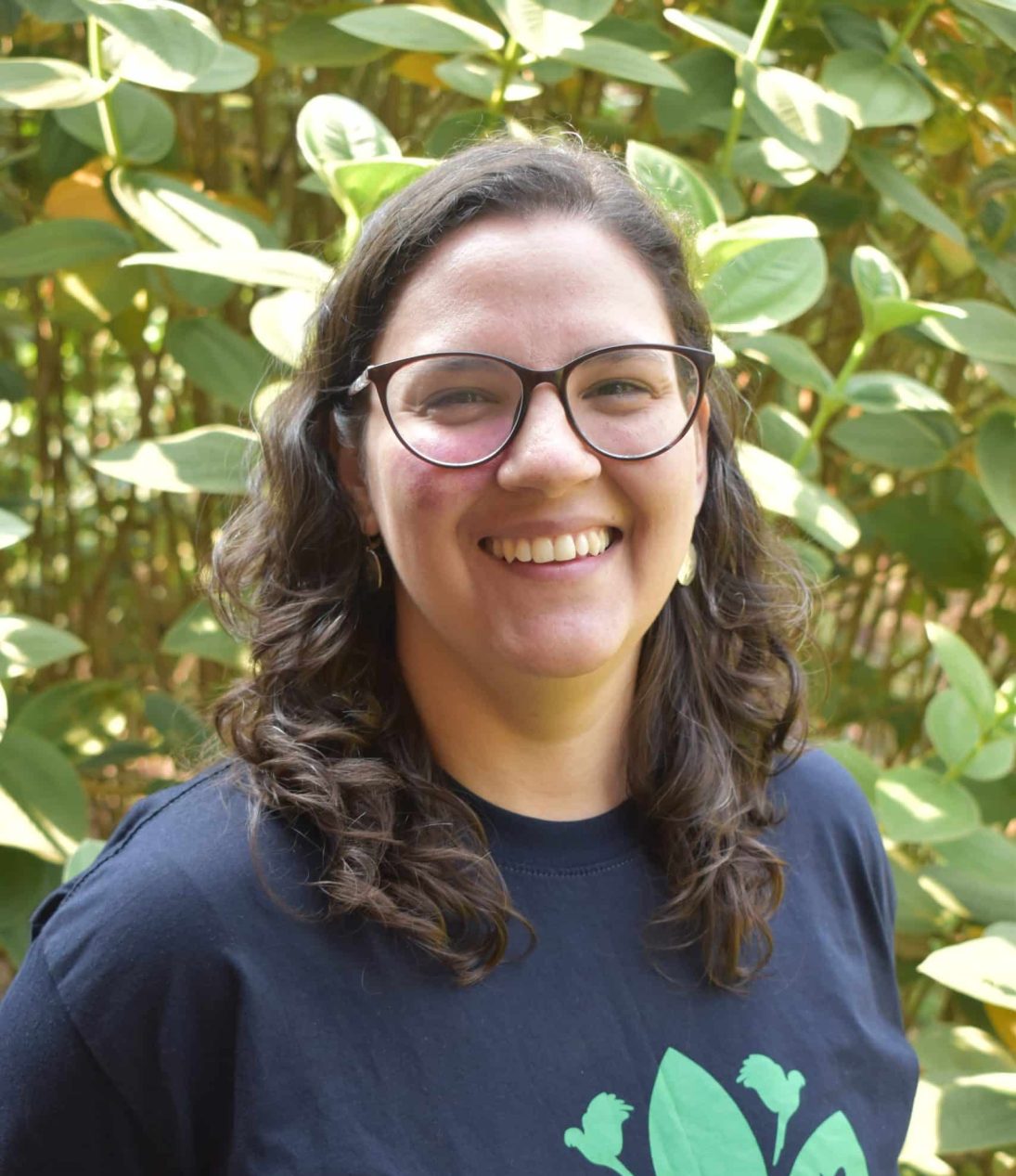
Candy Alicia Vilela Johnson
PeruCandy Alicia Vilela Johnson
Country: Peru
Since 2015, Candy has been dedicated to biodiversity conservation in the Amazon region of Peru, working from the Center for the Development of the Amazonian Indigenous – CEDIA, an NGO where she holds the position of Head of Interinstitutional Relations. From there, she has contributed to the establishment and management of protected natural areas, as well as to the recognition of the territorial rights of indigenous peoples. Based on her training as an anthropologist and with a participatory conservation perspective, she has contributed to the coordination of different multi-stakeholder spaces for the protection of indigenous territories and forests in Peru, achieving important milestones such as the establishment of the Sierra del Divisor National Park and the inclusion of the Matsés National Reserve in the IUCN Green List. She has an executive master’s degree in Development practices and policies and additional training in indigenous peoples’ rights and interculturality.

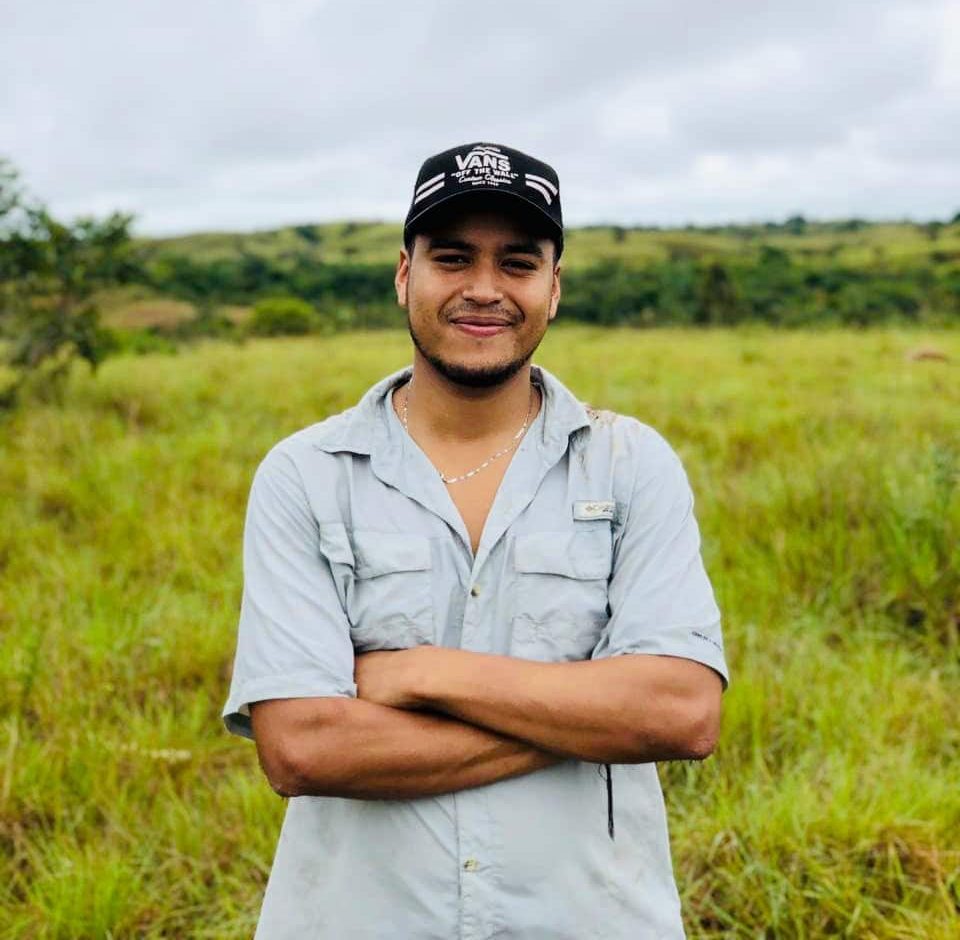
Carlos Andres Aya Cuero
ColombiaCarlos Andres Aya Cuero
Country: Colombia
Carlos holds two BSc’s in Biology and teaching, and a MSc in Science. For the last nine years, he has done research and environmental education, developed the camera trap and spatial ecology techniques in the Amazon, Orinoquia, and Caribbean; he participated in creation of community monitoring with rural communities of the eastern plains and former FARC combatants. At the Natural History Museums, he has developed tasks associated with the preparation and curation of specimens for scientific collections. More recently he has worked in the conservation programs related to armadillos, bats, and wild felines. He has participated in the publishing of books, environmental education primers, book chapters, scientific articles, conference abstracts, most scientific research results on mammals and 3 of these have been reviews for Mammalian Species Accounts by Oxford Academic Press. Finally, one of his dreams is to work full time in his NGO Kurupira Foundation.

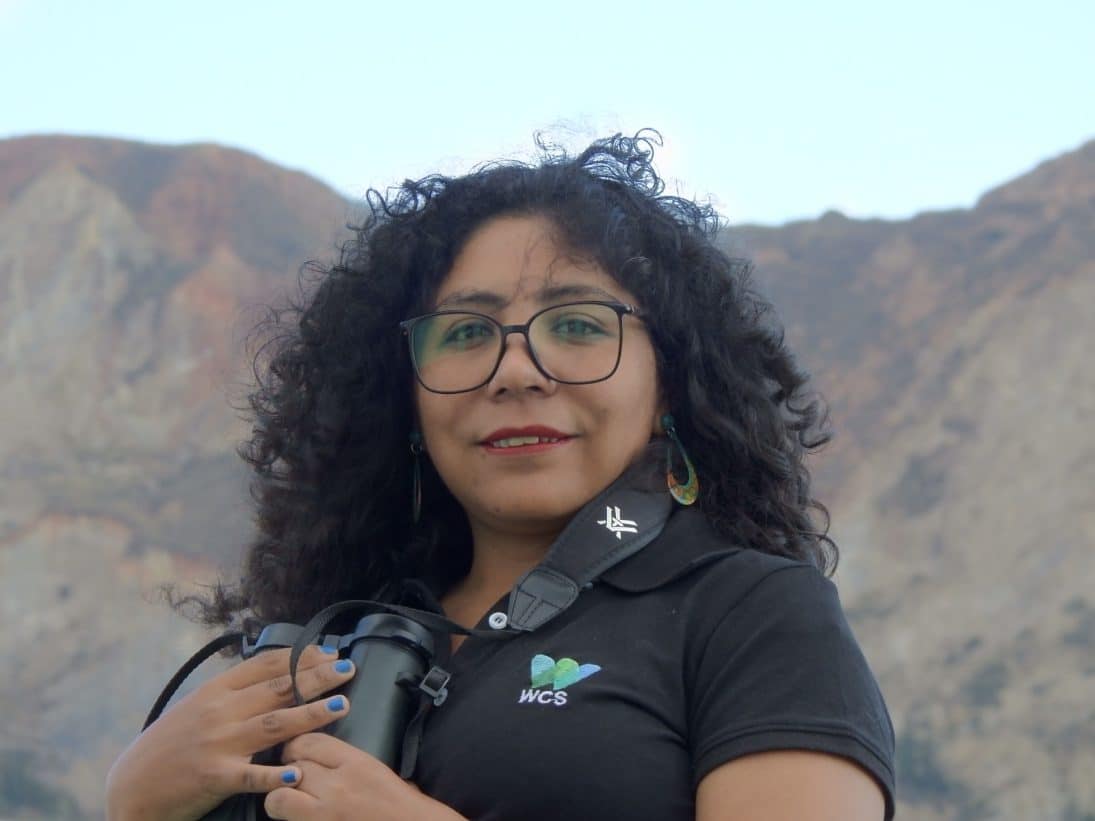
Cecilia Dubreyca Flores Turdera
BoliviaCecilia Dubreyca Flores Turdera
Country: Bolivia
Biologist, graduated from the Universidad Mayor de San Andrés. She has spent most of her professional life at the Wildlife Conservation Society (WCS). She completed her thesis on the diet of jaguars and pumas in the protected areas of Madidi and Pilón Lajas. In 2011, she worked on disseminating information on the endemic lucachis monkeys of Beni. Since 2019, she has been developing citizen science projects at WCS, the main one being the La Paz Nature City Challenge, with great acceptance by citizens and allowing strategic alliances with various sectors. These projects sparked her passion for birds and urban ecology, focusing her master’s studies on that area. At the same time, she works on conservation monitoring for the WCS Andes Amazonía Orinoquía program, and has supported work with Amazonian communities in the development of their communal plans.

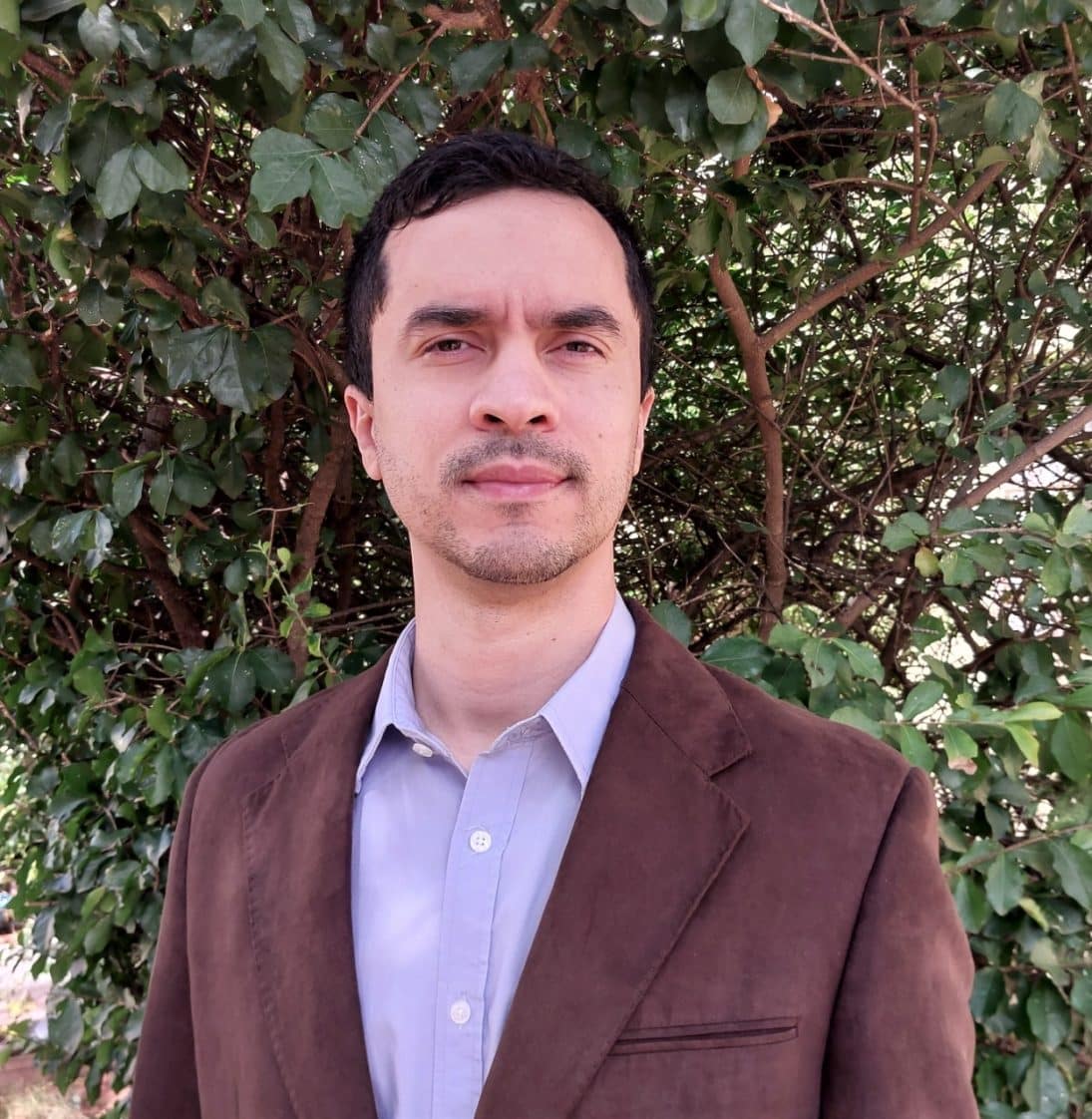
Dário Rodrigues Cardoso Junior
BrazilDário Rodrigues Cardoso Junior
Country: Brazil
Dário has a degree in Law and has been working in research and institutional coordination in the Amazon since 2010. He began his career at the Amazon Institute of People and the Environment (Imazon), one of the most renowned NGOs in the country, where he worked to improve land governance. Since 2019, he has worked at Transparency International – Brazil, with the aim of preventing and combating corruption associated with environmental crimes. He supports: public audits on forest data transparency, combating timber laundering, social control over land data, strategies against wildlife trafficking, among other activities.

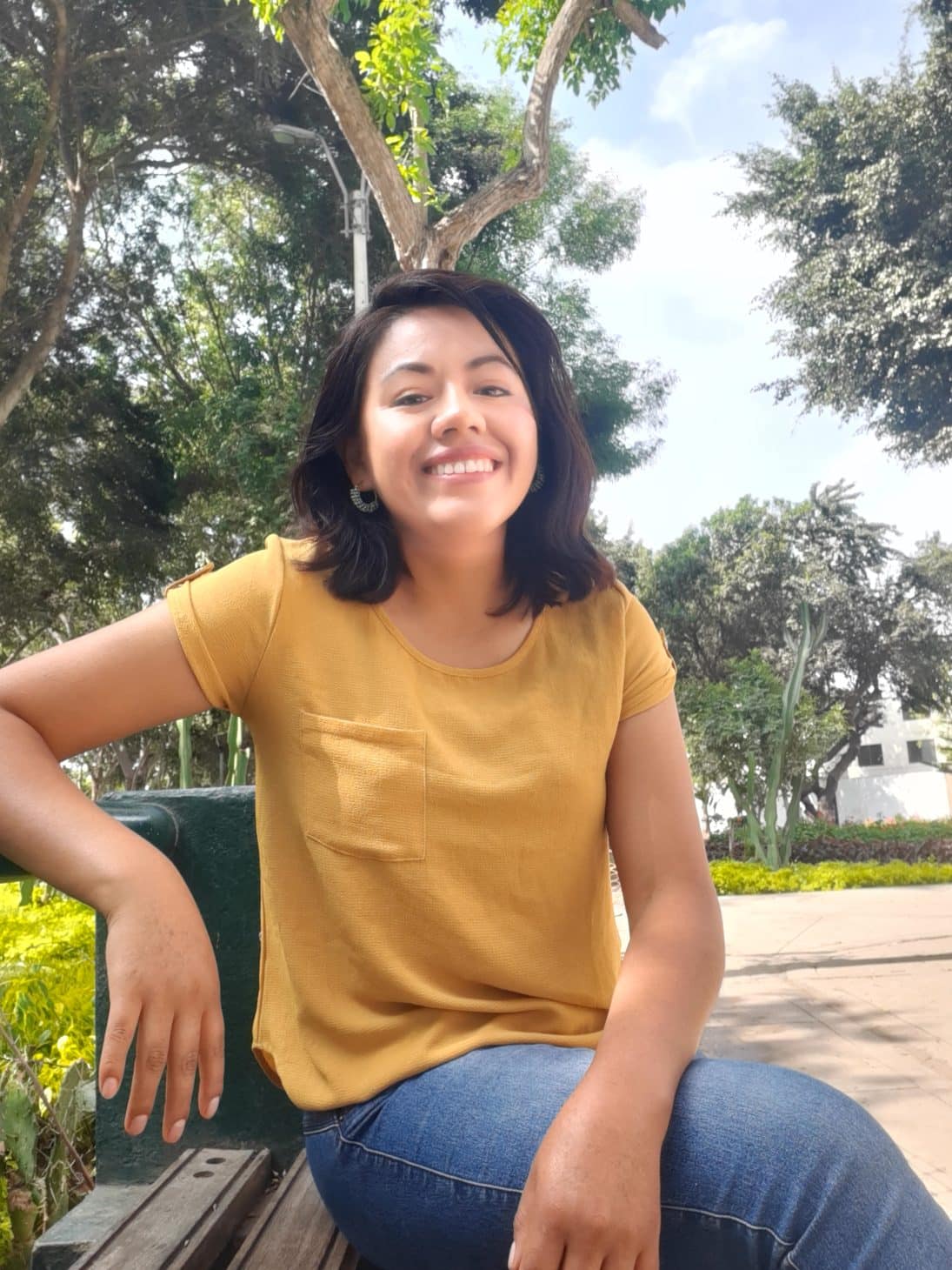
Dunia Karina Padilla Gallegos
PeruDunia Karina Padilla Gallegos
Country: Peru
In recent years, Dunia has dedicated her career to leading collective actions with civil society for the conservation of the Amazon. She works as a Specialist in Organizational Strengthening and Environmental Citizenship at WCS Peru, in this role, Dunia designs, executes and evaluates the active and effective participation of civil society to reduce environmental crimes. She is a fellow of the global network of social entrepreneurs, Teach For All, Global Shaper of the World Economic Forum. Dunia has a degree in law, a master’s degree in Business Law, is an educator, Coach, social entrepreneur and conservationist, and has contributed to the field of conservation with the creation of 4 Citizen Socio-Environmental Laboratories in 4 regions of Peru (Lima, Iquitos, Cusco and Puno), mobilizing people to engage in environmental citizenship. Dunia was recognized as an emerging leader by the Congress of the Republic of Peru and for her contribution to female empowerment as a Woman Leader of the Bicentennial by the Women’s Chamber of Commerce.

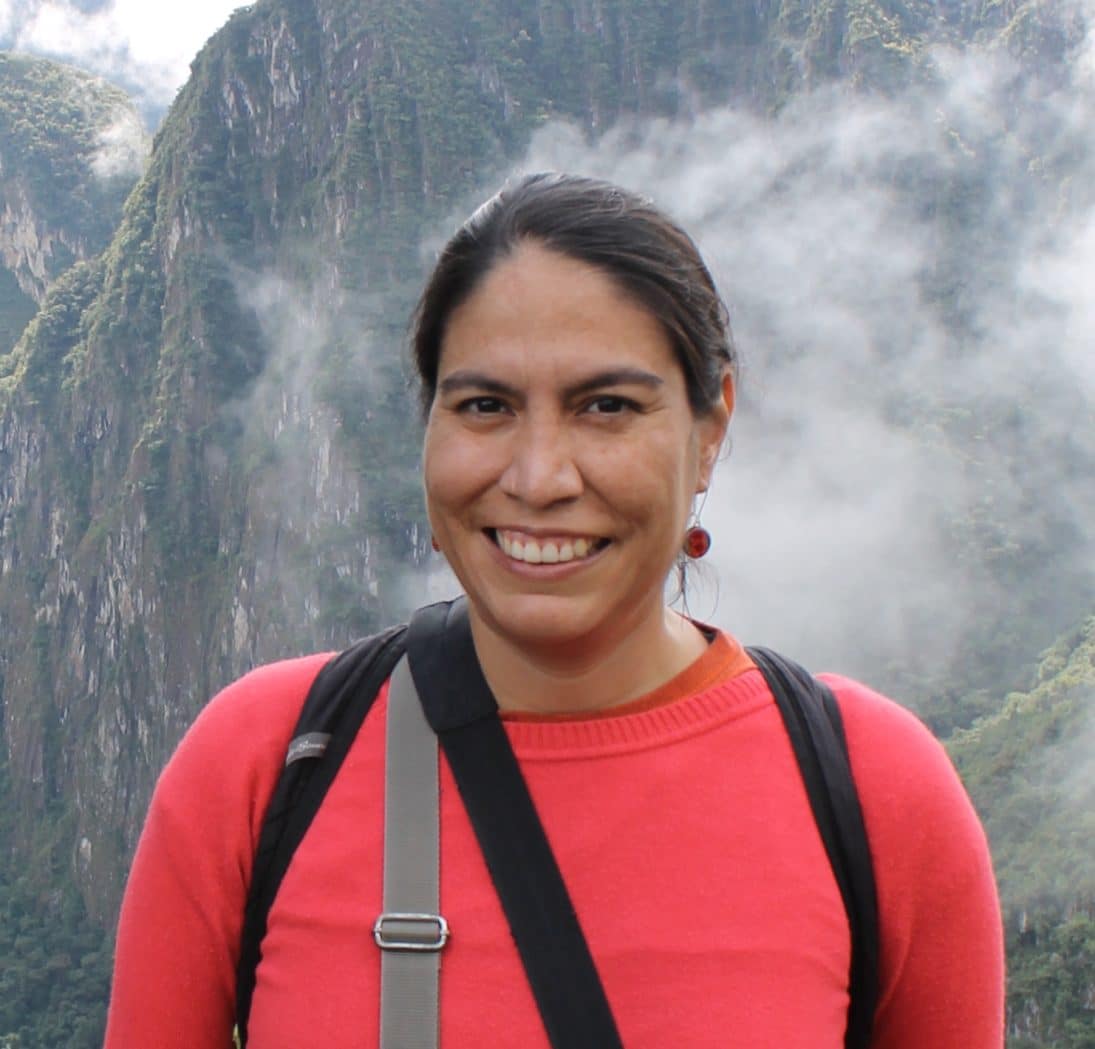
Farah Maria del Rocio Carrasco Rueda
PeruFarah Maria del Rocio Carrasco Rueda
Country: Peru
Peruvian biologist with a PhD in Interdisciplinary Ecology from the University of Florida, Gainesville, United States. Her research focuses on anthropogenic impacts on mammal species and the evaluation of the effectiveness of mitigation measures. Her doctoral thesis focused on evaluating the impacts of agricultural activities on bat communities in the Peruvian Amazon. She collaborates with the Field Museum of Chicago, currently as a consultant and previously as coordinator of the Putumayo Biocultural Corridor. She has worked in collaboration with government entities, NGOs, indigenous and local organizations, and academic institutions. She is a research associate at the Smithsonian’s National Zoo & Conservation Biology Institute. She was awarded the Women in Conservation Science Award, a special recognition given by Bat Conservation International. She actively participates in volunteer groups focused on empowering women and promoting diversity, equity, and inclusion.

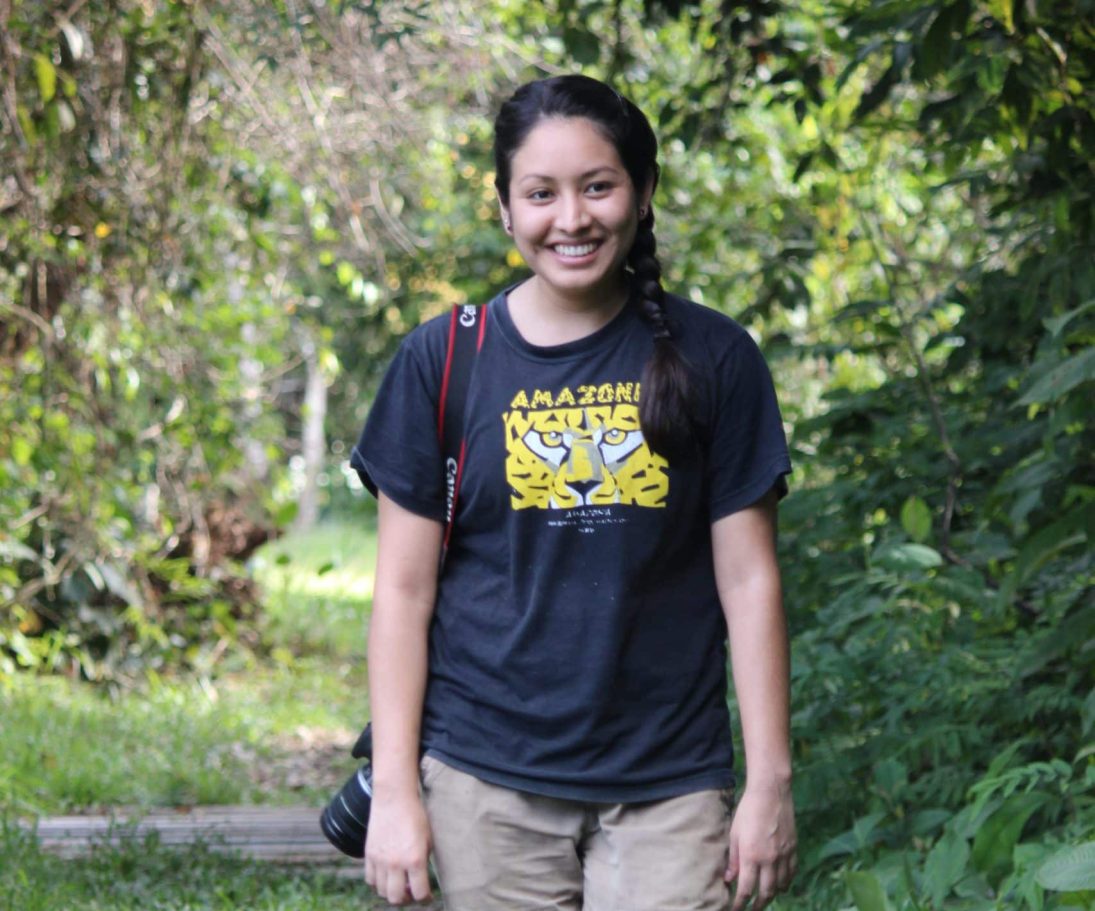
Fiorella Andrea Briceño Huerta
PeruFiorella Andrea Briceño Huerta
Country: Peru
Fiorella is an interdisciplinary conservation scientist who has dedicated her career to addressing socio-ecological challenges in the Peruvian Amazon. Her doctoral research focused on wild meat consumption in Iquitos, exploring its relationship to economic stability, food security, and species conservation. Currently, she is a Postdoctoral Researcher at Florida International University’s Amazon Riverscapes Initiative, where she leads research on freshwater ecosystems. Her work includes a rapid assessment of riverine communities’ perceptions of the 2023 low-water event and a diagnostic of large catfish fishing in the Amazon. Fiorella has contributed to a diverse portfolio of interdisciplinary projects focused on species, habitat, and ancestral land conservation. She has worked on primate behavioral studies, community conservation projects, documentary development, participatory mapping, and environmental education.

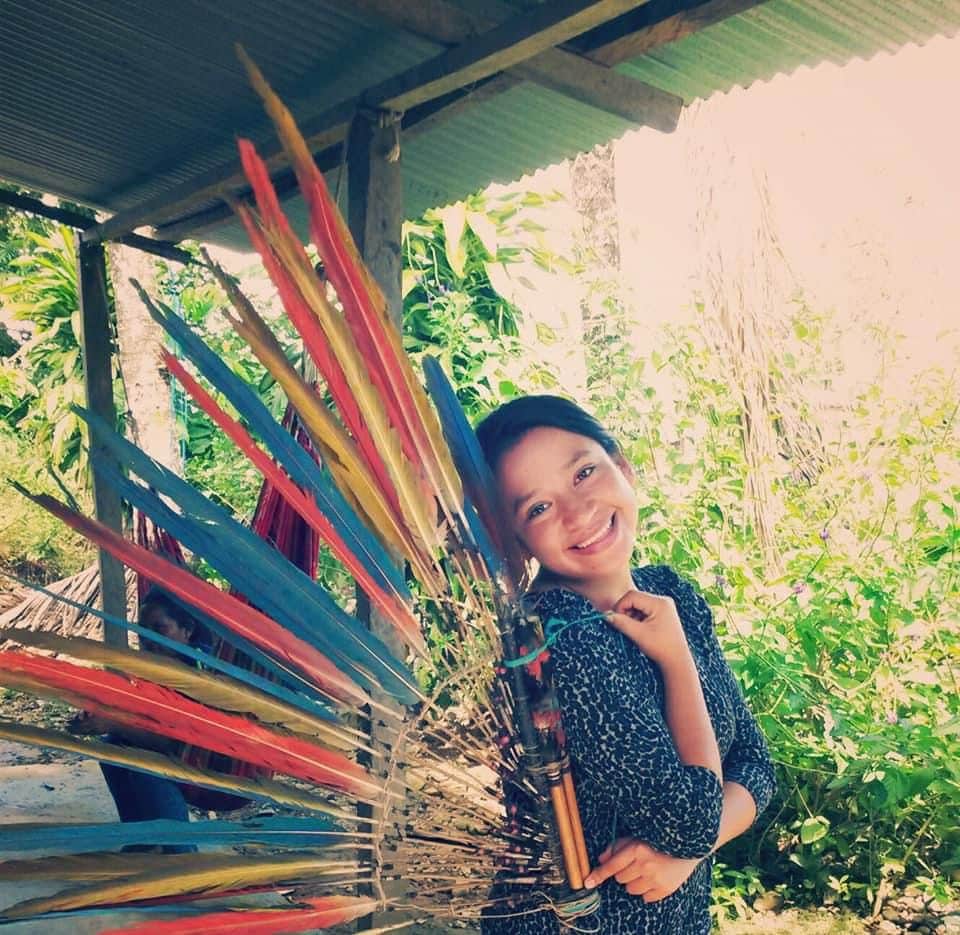
Ingrid Shiomara Yabar Farfan
PeruIngrid Shiomara Yabar Farfan
Country: Peru
Since her early career, Shiomara has dedicated her work to providing advice on the processes of recognition and physical-legal sanitation of the territories of the native communities in Madre de Dios, promoting the coordination of work with public and private entities involved in these processes. She has also contributed to strengthening the capacities of officials and authorities in environmental management, and has actively participated in coordination and education spaces on environmental law and the right to a healthy environment. Currently, through the work she has carried out with Indigenous Organizations in Madre de Dios, Shiomara is dedicated to the protection and defense of the life and integrity of the members of the native communities, as well as their territorial and environmental rights. The deep bond she has established with these communities has strengthened her commitment to work for their defense and protection.

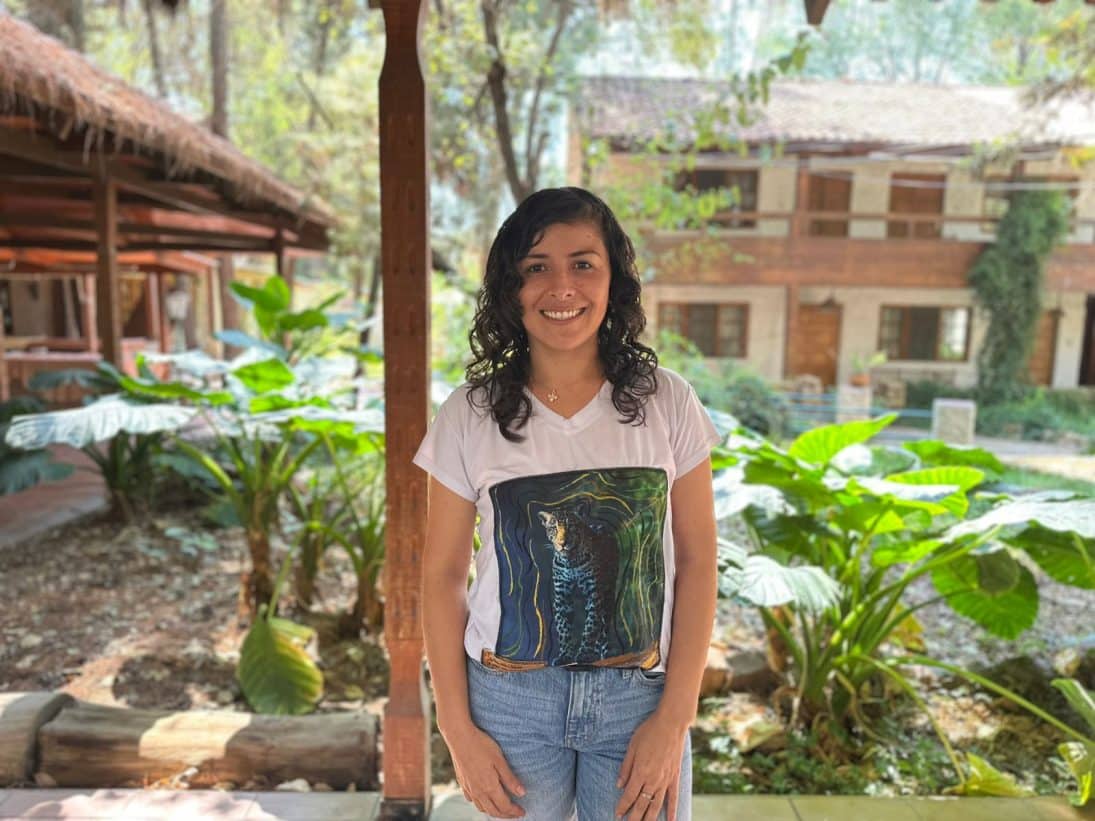
Jancarla Ribera Salvatierra
BoliviaJancarla Ribera Salvatierra
Country: Bolivia
Jancarla is the co-founder and Executive Director of El Llamado del Bosque, an organization dedicated to conserving forest ecosystems through scientific research, public awareness, and sustainable production. With expertise in socio-environmental project management, she focuses on citizen education and sustainable development. Her work includes leading ecosystem restoration, reforestation, and livelihood recovery projects following forest fires, empowering local communities to develop sustainable value chains based on wild Amazonian fruits like açaí. Jancarla also leads environmental education and leadership programs, including the Bosque Escuela initiative, which focuses on the conservation of endangered species in Bolivia such as the jaguar, spectacled bear, and red-fronted macaw. As a member of the Young Leaders of the Americas Initiative (YLAI) and Inspira Bolivia Network, she is dedicated to enhancing the resilience of Amazonian landscapes and fostering collaborative, community-led conservation efforts.

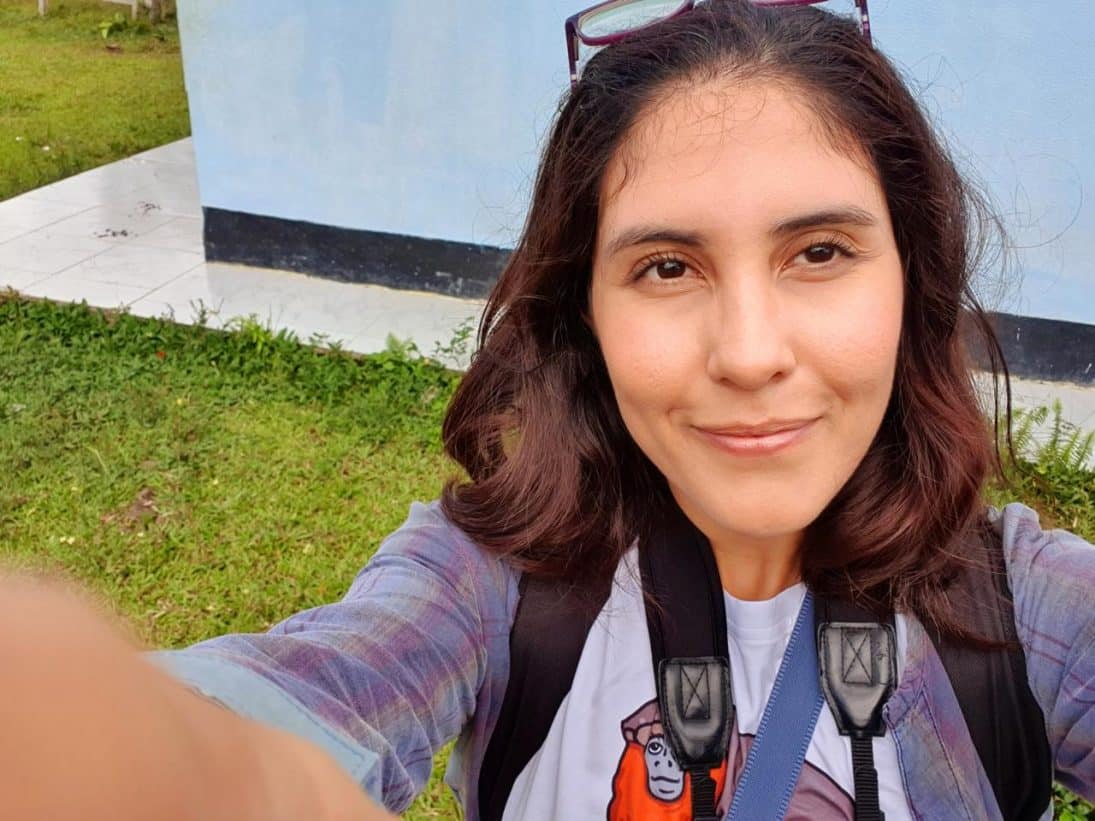
Johana Alejandra Villota Mogollon
ColombiaJohana Alejandra Villota Mogollon
Country: Colombia
Johana Villota from Colombia; a biologist and Master in Biological Sciences. I am 30 years old, a young conservationist and primatologist, with skills in fundraising and project management. From 2017 to 2023, I have been researching the abundance, behavior, and movement of a very special primate, unique to the Colombian Amazon and critically endangered, the Cauca and Caquetá marmoset (Plecturocebus caquetensis). In 2021, together with colleagues from Piamonte Biodiverso, Conservation International Colombia, Re:Wild, and Natgeo fellows, we managed to raise funds for the first P. caquetensis conservation project in Piamonte, Cauca, which I coordinated as part of the Salvemos Selva de Piamonte Association. Currently, I continue to focus on primatology and environmental education, with the preparation of the book “Primates of the Colombian Amazon”, and I am seeking doctoral positions to quantify the habitat of P. caquetensis, and its effects on the behavior, genetics and abundance of the species.

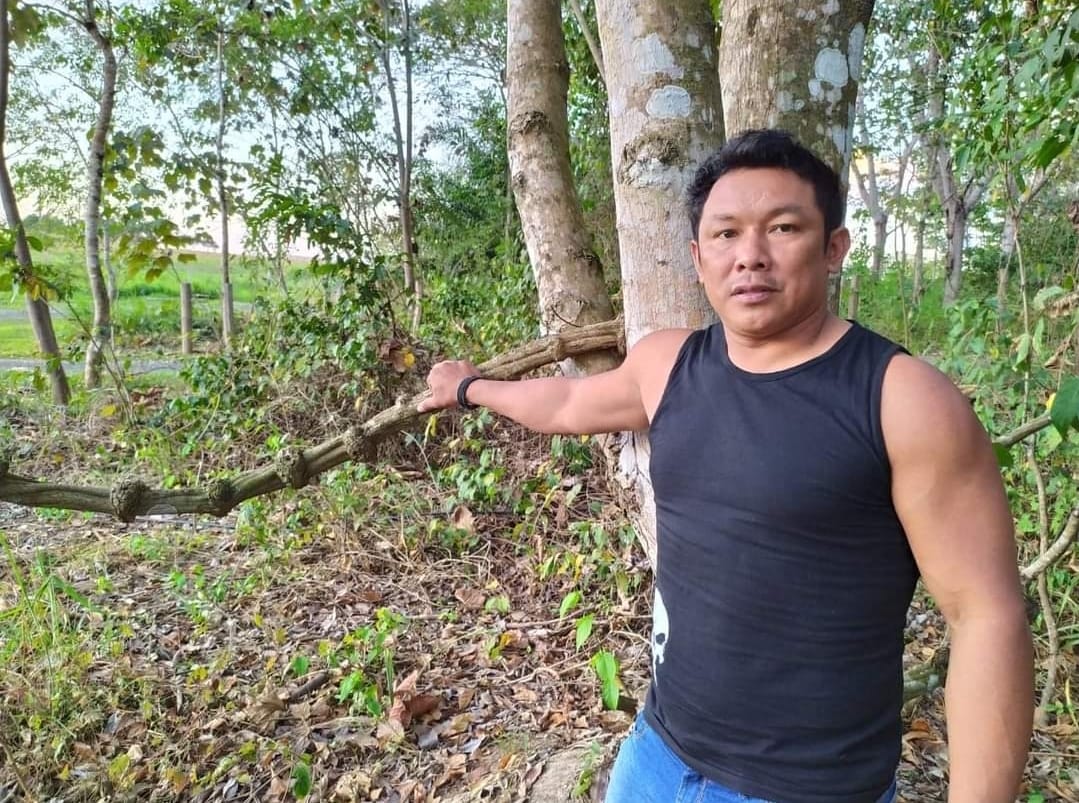
Jose Palahv Gaviao
BrazilJose Palahv Gaviao
Country: Brazil
I am Jose Palahv Gavião, Gavião ethnic group from the state of Rondônia, Brasil. I am the grandson of the former pajé of the Gavião people. I am the president of the Coopervekála Cooperative, which I founded in 2021. Coopervekála Cooperative’s main goal is to promote the strengthening of the work of the socio-biodiversity chains, to strengthen the work of the indigenous extractivists, keeping the forest standing while generating income for our community. Coopervekála focuses on the extraction of non-timber forest products such as nuts, forestry seeds, cumaru (Amazonian vanilla), rubber, açaí fruits and other agricultural products. I am also a teacher for indigenous K-12 students, teaching them about natural sciences and biodiversity. My dream as the president of Coopervekála is to structure the cooperative, seeking to add value to our products, inserting them into internal and external markets. With this work we can guarantee the long-term conservation of biodiversity. My dream as a teacher is to apply the knowledge I acquire during this training to my students and leave a legacy to my people.

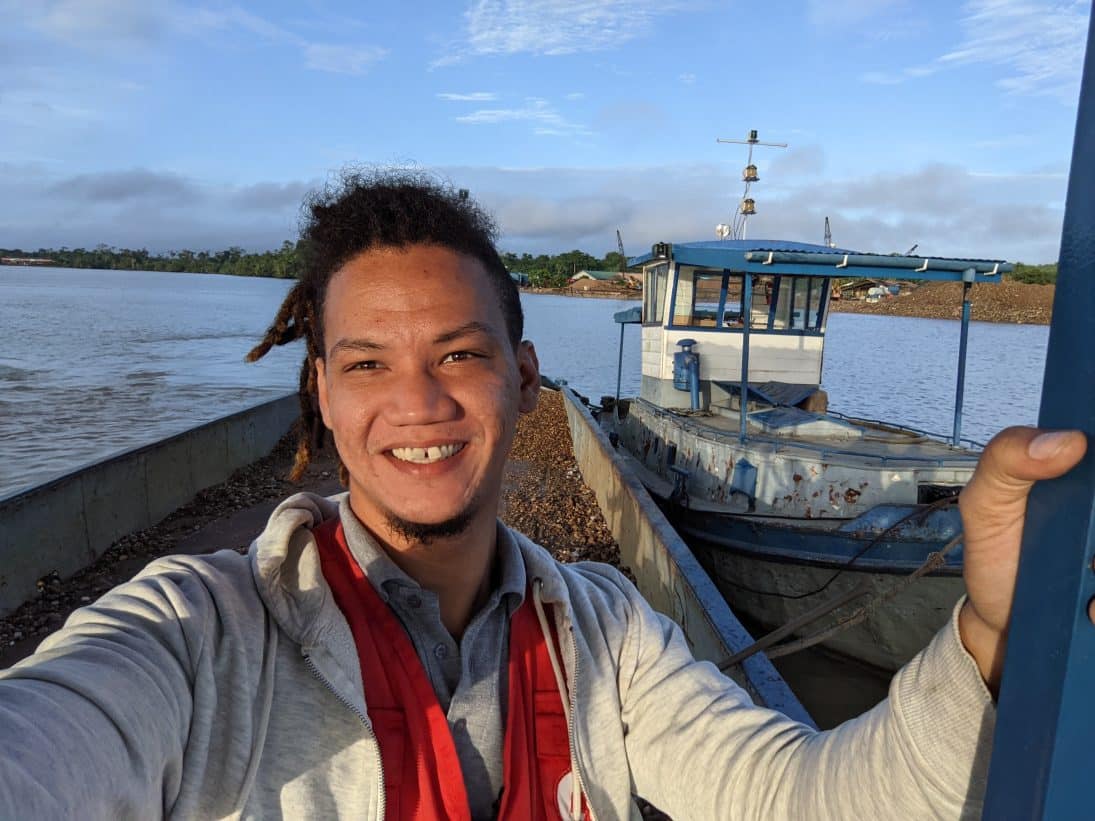
Luciano Jozef Doest
SurinamLuciano Jozef Doest
Country: Surinam
Luciano Doest is a dedicated environmental professional based in Suriname. With a Bachelor of Science in Environmental Sciences from Anton de Kom University, Luciano has amassed significant experience in research and field facilitation. He serves as a Field Facilitator for the Enviroart Foundation, coordinating social surveys and primate conservation efforts. Previously, Luciano was a Technical Field Officer with the Suriname Red Cross Society, where he led disaster resilience projects and climate change initiatives. His role involved extensive community engagement, including training disaster response teams and guiding students on early warning systems. He also worked as a Research Assistant at the Center for Agricultural Research in Suriname (CELOS), focusing on non-timber forest products and forestry research. Additionally, Luciano’s expertise extends to digital marketing, climate education, and mangrove conservation, reflecting his commitment to environmental advocacy and community resilience.

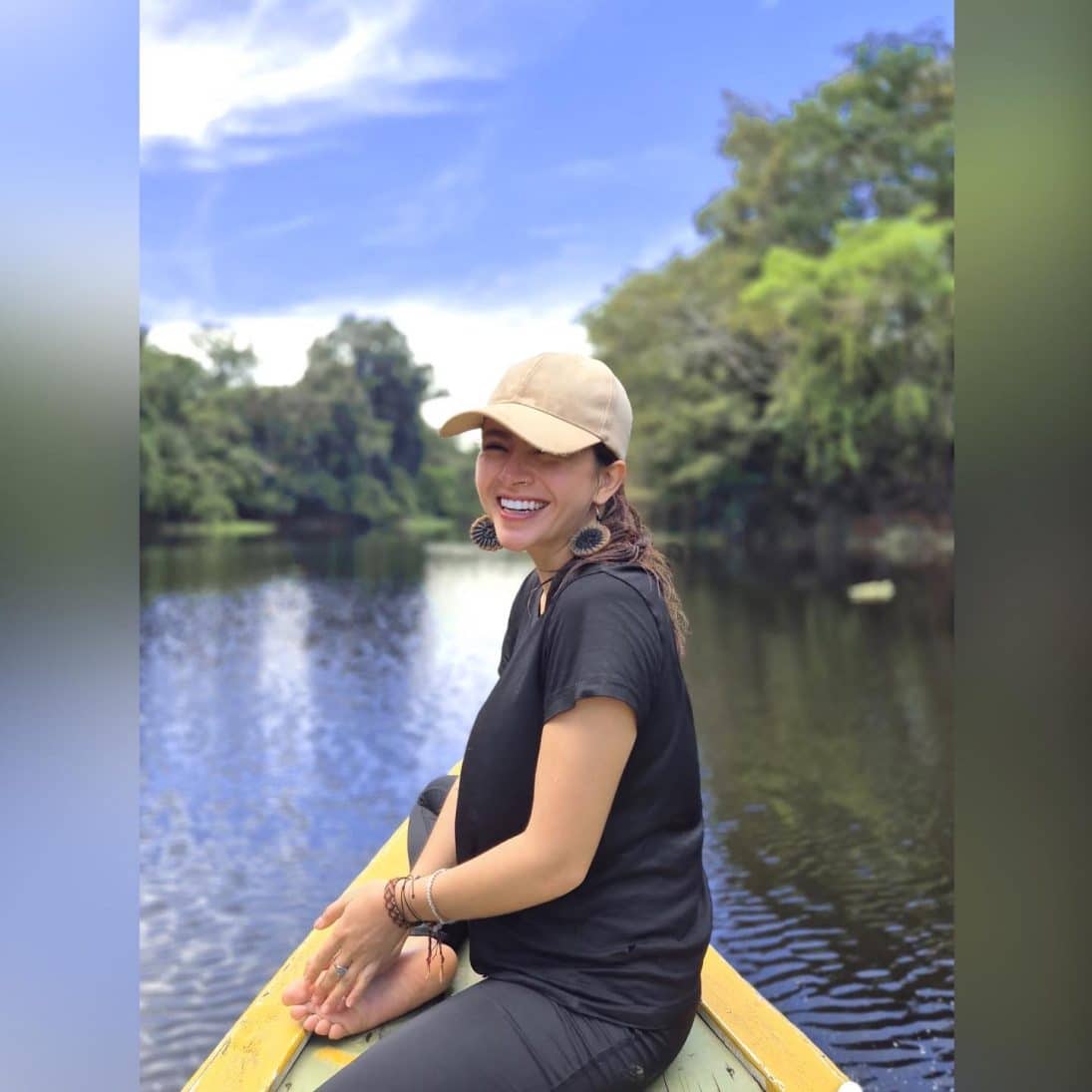
Maria Fernanda Barahona Cruz
ColombiaMaria Fernanda Barahona Cruz
Country: Colombia
Professional in Ecology and International Relations with a Master’s degree in Development Studies. Focused on socio-environmental solutions from intersectoral and intercultural approaches, particularly in countries of the Amazon basin with State institutions and local indigenous organizations at regional, national and international levels. Experience in the development and implementation of public policy strategies for environmental conservation, sustainable energy transition and protection of the rights of vulnerable communities. Most of my work has focused on the protection of indigenous peoples in isolation and initial contact in Amazonian countries and I have acquired transversal experience in planning, implementing and monitoring governance projects in local and international settings.

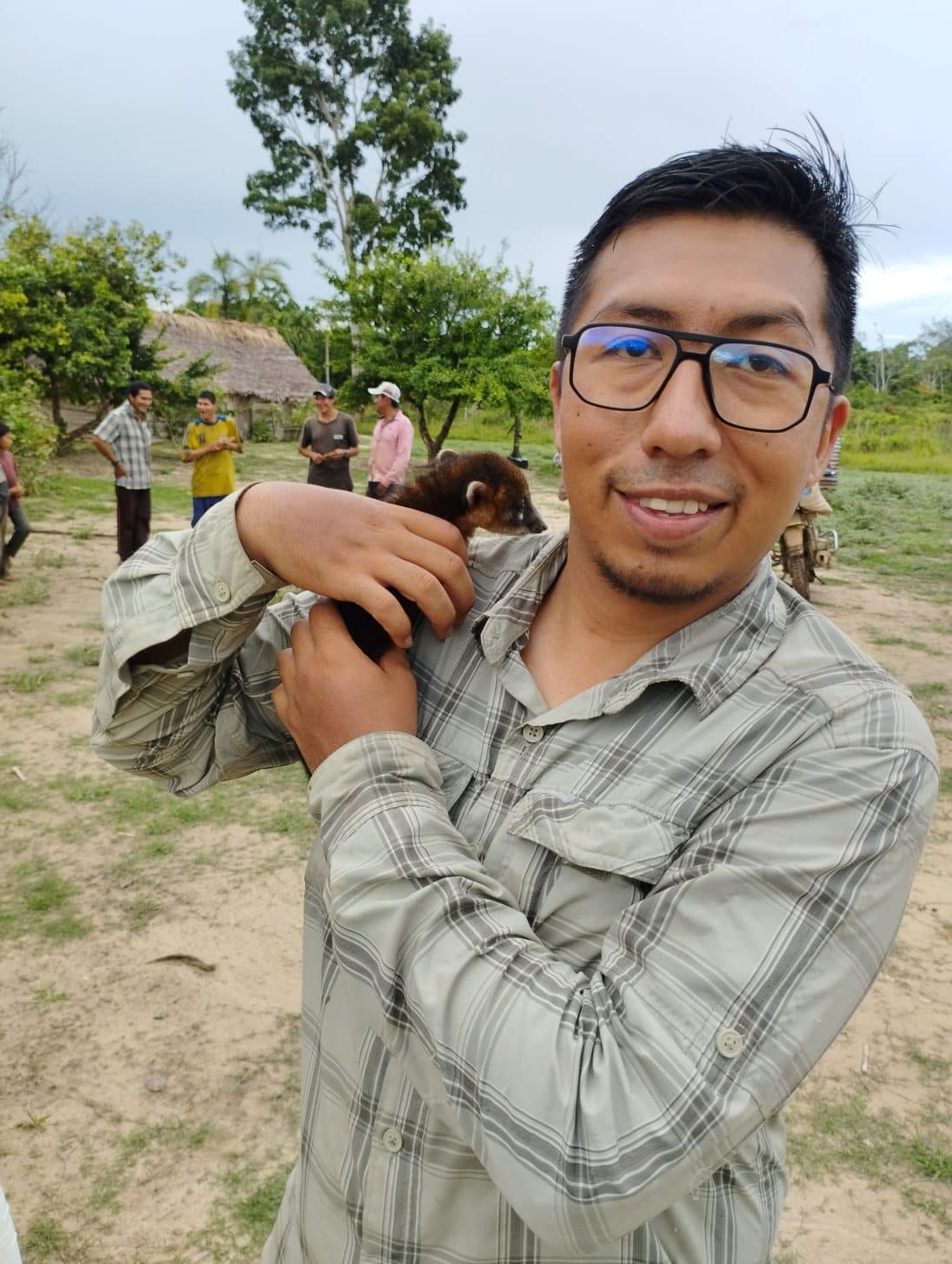
Mario Elizardo Cerezo Calderon
BoliviaMario Elizardo Cerezo Calderon
Country: Bolivia
Mario works for and on behalf of the Bolivian Amazon at ORE, an NGO that supports the conservation of indigenous territories in collaboration with IWGIA. His current work consists of empowering indigenous communities in the use of GIS technologies to monitor, control and defend their territory in the face of conflicts such as deforestation, climate change and forest fires. Mario is an environmental engineer with a diploma in climate analysis and a diploma in indigenous peoples, with an ongoing master’s degree in watershed management, a Quebracho forest firefighter and a climate activist at PBACC.

Marysol Franco Goes
BrazilMarysol Franco Goes
Country: Brazil
Marysol grew up between the Pantanal and the Bolivian Amazon, shaping her deep connection to nature. Her journey eventually led her to the Brazilian Amazon, where she has spent six years dedicated to conservation and socio-environmental innovation. Currently pursuing a Master’s in Global Governance and International Policy Formulation, she focuses on navigating the complex dynamics of bioeconomy in the Amazon. Through her leadership in initiatives like the Amazon Bioeconomy Hub, a partnership between the Foundation for Amazon Sustainability and the Green Economy Coalition, and the Network of Women of Water and Forests (REMAF), she has connected over 160 organizations and supported 70 women leaders protecting sociobiodiversity. Known for fostering collaborative networks, Marysol blends grassroots activism with strategic advocacy to strengthen local capacities and promote inclusive development, aligning conservation efforts with local voices and policies to ensure community-driven, sustainable solutions.
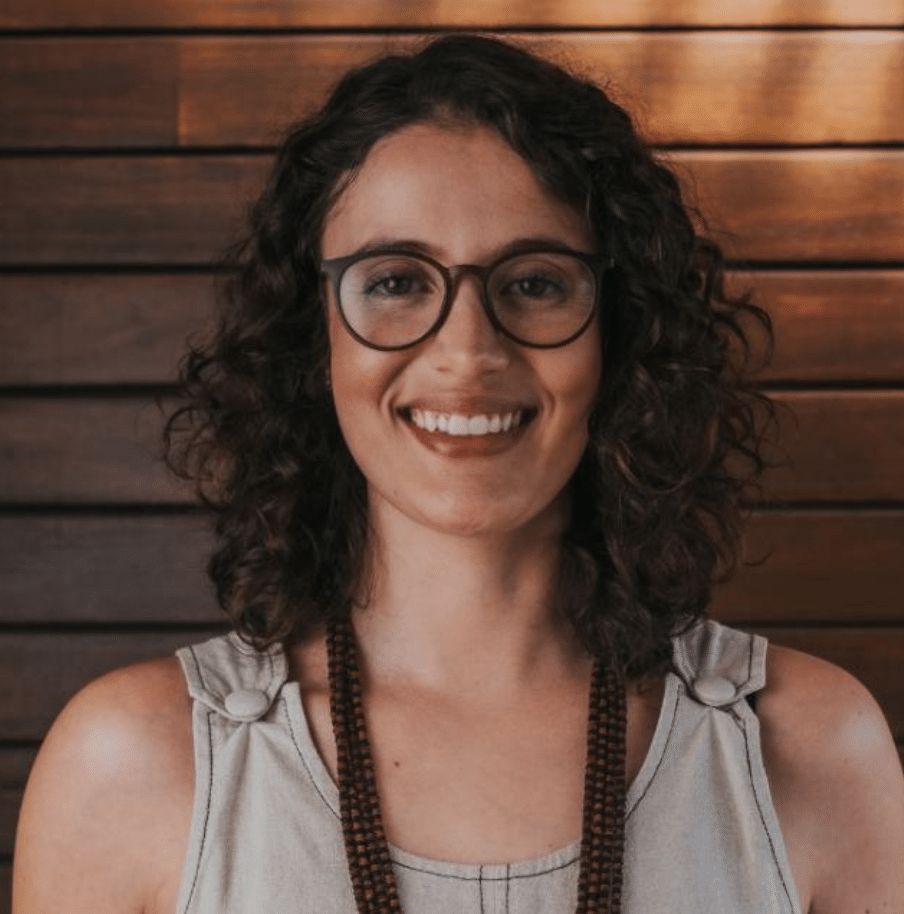
Natali Vilas Boas Silveira
BrazilNatali Vilas Boas Silveira
Country: Brazil
Environmental Engineer degree from UNICAMP. Master’s degree in Biodiversity Conservation and Sustainable Development from IPÊ – Institute of Ecological Research – focused on Payment for Environmental Services and carbon in areas with traditional communities. Natali has been part of Imaflora for more than 7 years, a Brazilian NGO working towards the conservation and development of sustainable chains. Currently, she coordinates services related to the measurement of carbon removal in restoration projects through the ‘Carbon on Track program’, and research and development in socio-environmental safeguards in conservation and REDD+ projects in the Amazon, mainly in collective territories.

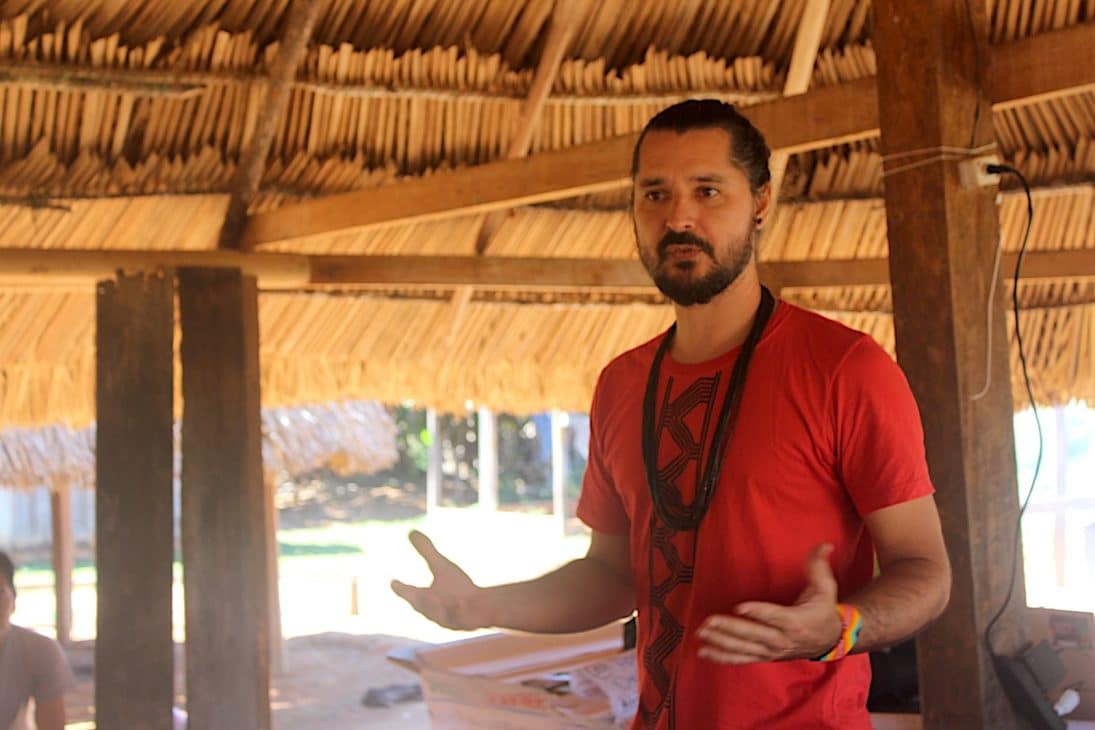
Rodrigo Marcelino
BrazilRodrigo Marcelino
Country: Brazil
For the last 17 years, Rodrigo has been in Mato Grosso with a focus on the conservation of protected areas. He started his career in 2007, at the Centro de Vida Institute, where he worked with fire outbreak analysis, using GIS tools and participatory mapping. I participated in studies for the creation of Conservation Units, such as the Juruena National Park, and developed subsidies for management plans of UCs in the Amazon. Since 2009, he has dedicated himself to the conservation of Indigenous Territories, preparing Indigenous Territorial Management Plans in the Amazon Basin. Developed indigenous ethnomapping and ethnozoning work and constructed indigenous territorial and environmental management plans in 10 indigenous lands in Mato Grosso and Amazonas. Currently, he leads territorial management projects and strengthens sociobiodiversity chains in 10 territories, of 11 Indigenous Peoples. Rodrigo is a biologist, specialized in Indigenism and a Master’s in World Heritage and Cultural Projects for Development.

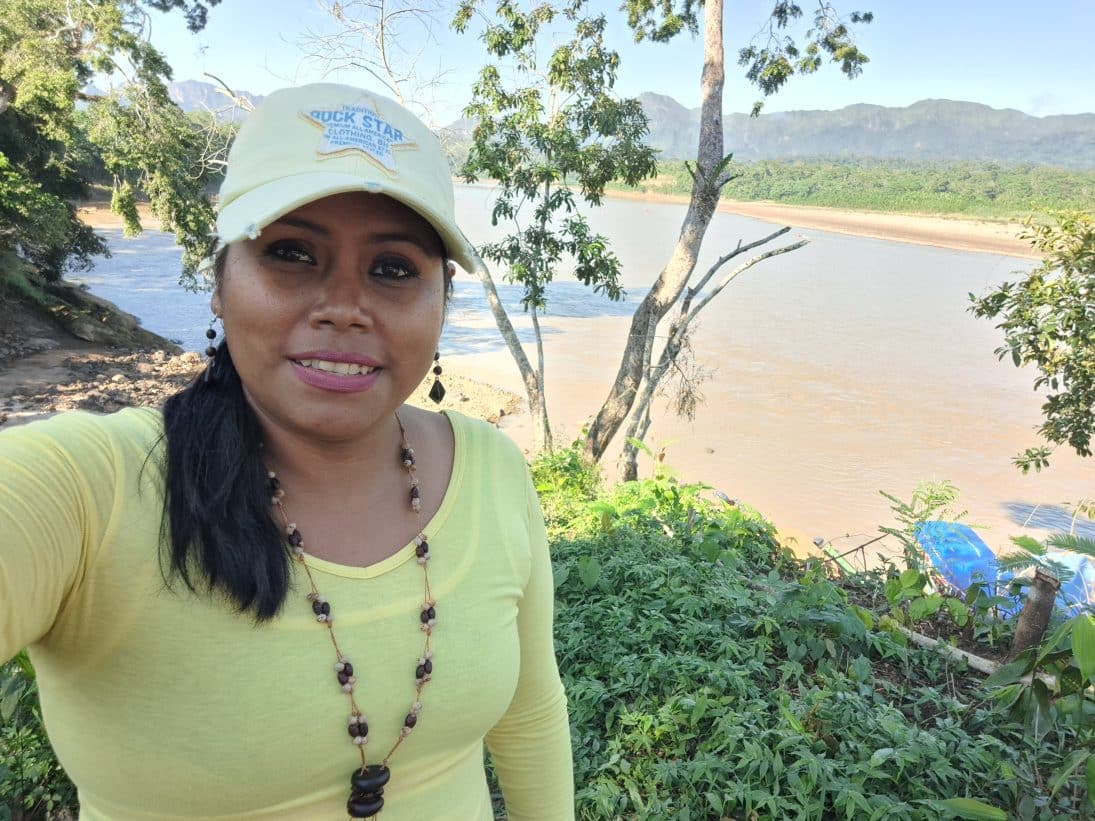
Ruth Marilin Buchapi Velasco
BoliviaRuth Marilin Buchapi Velasco
Country: Bolivia
I was born into a Tacana indigenous family. From a young age, my parents instilled in me a deep respect for the environment and the livelihoods of indigenous peoples. I studied Education Sciences for Human Development, which allowed me to acquire a solid foundation in social and community development issues. After completing my studies, I became involved in conservation projects, working actively with various public and private institutions to protect ecosystems and guarantee the well-being of indigenous communities. Throughout my life and as a professional, I have worked in coordination with indigenous organizations, leading initiatives focused on conservation and the creation of management instruments that promote sustainability. Currently, I am working in the monitoring of the TCO-PL indigenous territory, where I continue my work committed to protecting the environment and strengthening indigenous communities.

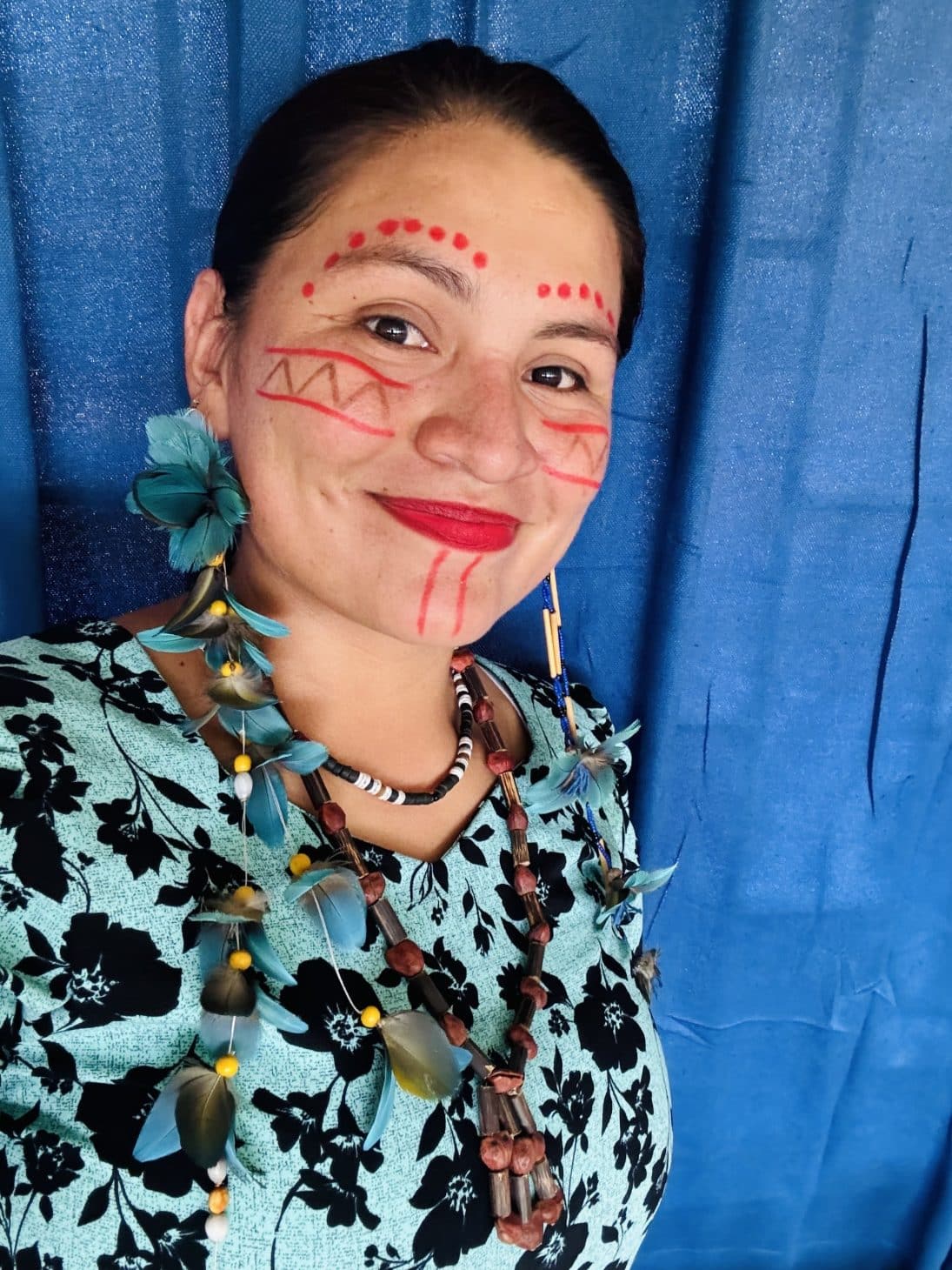
Tekwitha Kim Spencer
GuyanaTekwitha Kim Spencer
Country: Guyana
Kim Spencer grew up in a farming environment in Guyana’s Rupununi region, learning early in her life to tame wild nature, to love the natural environment, and to interact with the land. Kim is enrolled with the South Rupununi Conservation Society (SRCS) as a Cadet Ranger, bringing her experience, innate training, and love for the natural habitat to the job of conservation in the Rupununi. Growing up on the Ranch among the savannahs, with its wildlife and natural habitat, Kim learned essential skills and became trained and equipped in a variety of environmental knowledge, such as handling birds using mist nets, navigating GPS, and using camera footage to collect and analyze data of the natural environment. Kim dedicated herself to education, serving as a mathematics teacher at Sand Creek Secondary School. After school hours, she would often lead expeditions into the wilderness, setting up cameras to monitor local wildlife and teach her students about the delicate balance of the ecosystem.

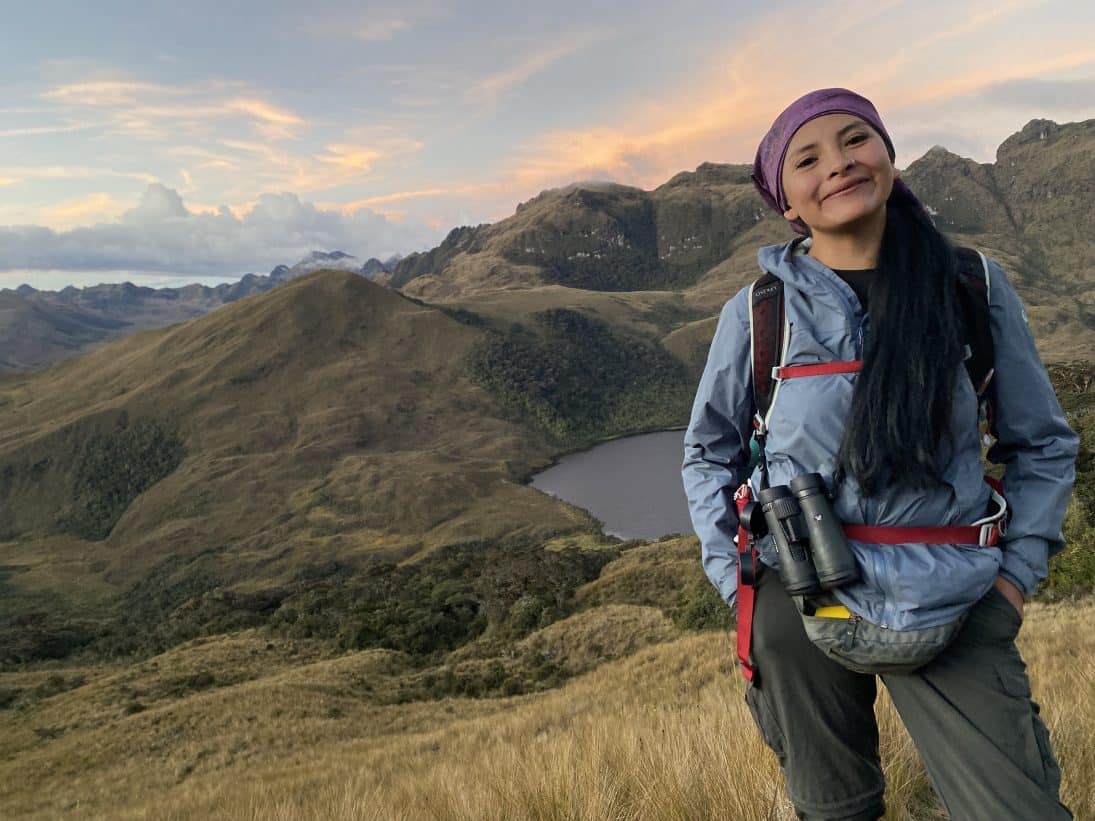
Vania Tejeda
PeruVania Tejeda
Country: Peru
Vania has a degree in Biology from the Universidad Nacional San Agustín Arequipa and is currently a Terrestrial Biodiversity Specialist at the Smithsonian Institute Center for Conservation and Sustainability. Over the past 10 years, Vania has gained extensive experience in managing biodiversity conservation projects. She is interested in spatial ecology, particularly in mammal movement patterns and understanding the associated conservation challenges. Currently, she leads two long-term projects, to mitigate the fragmentation of Amazonian forests and studying the mountain tapir in the páramos and montane forests. She is also an active member of the Women in Nature Network Peru (WiNN) and a founding partner of NODO Conservation, an NGO focused on wildlife conservation and encouraging the participation of women. Through this space, Vania seeks not only to generate scientific information but to develop effective solutions to real-world conservation problems.

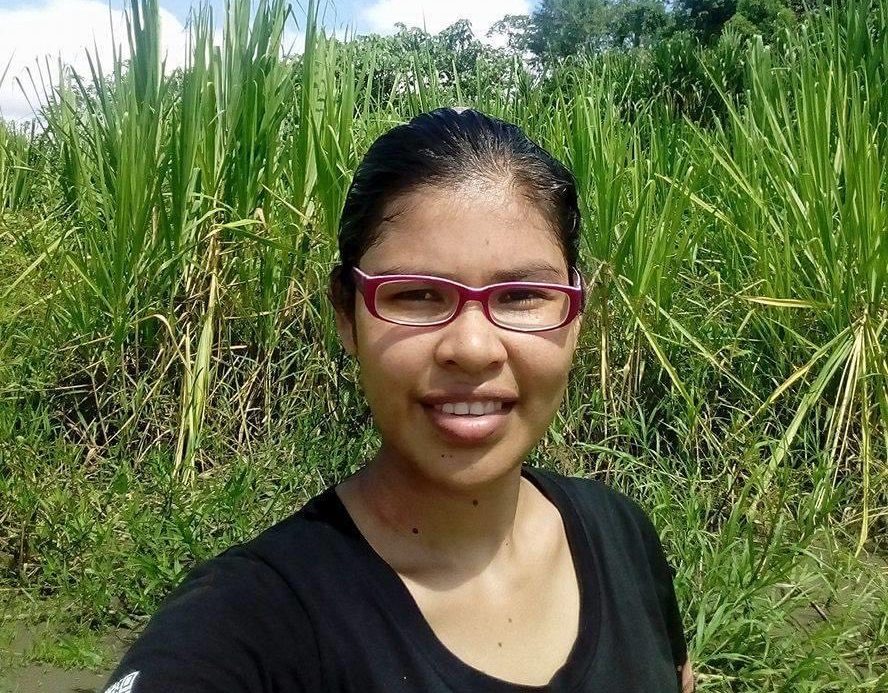
Yulissa Margoth Trigoso Zorrilla
EcuadorYulissa Margoth Trigoso Zorrilla
Country: Ecuador
Yulissa Trigoso Zorrilla is a young indigenous woman from the Yine people of Peru who has been working for more than a decade to defend her territory against different threats such as mining, illegal logging, among other activities that indigenous communities face every day. She has done hard work in empowering youth by creating a regional organization such as the Organization of Youth and Students of Madre de Dios, Peru. Another of the fundamental works she has done and continues to do is cultural revaluation through cultural events, small Yine and Shuar narratives, songs and the development of a database of Yine culture. Currently, one of the works she has started is the empowerment of indigenous women and the implementation of indigenous economy through the implementation of the Ikiam project in the Shuar Pampants community, in the Province of Morona Santiago, Ecuador.

Management and Governance
Advisory Committee
Avecita Chicchón, Gordon and Betty Moore Foundation
Jean-Gael Collomb, Wildlife Conservation Network
Jonathan Dain, University of Florida
Suzana Padua, Instituto de Pesquisas Ecológicas
John Robinson, Global Environmental Facility
Content Development Committee
Carolina Jordão Nogueira, Coletivo Passiflora Socioambiental/Arizona State universi
Jonathan Dain, University of Florida
Laura Gruber, Wildlife Conservation Network
Maria Teresa Vargas, Natura Bolivia
Suzana Padua, Instituto de Pesquisas Ecológicas
Program Manager
Nina Attias, Wildlife Conservation Network


